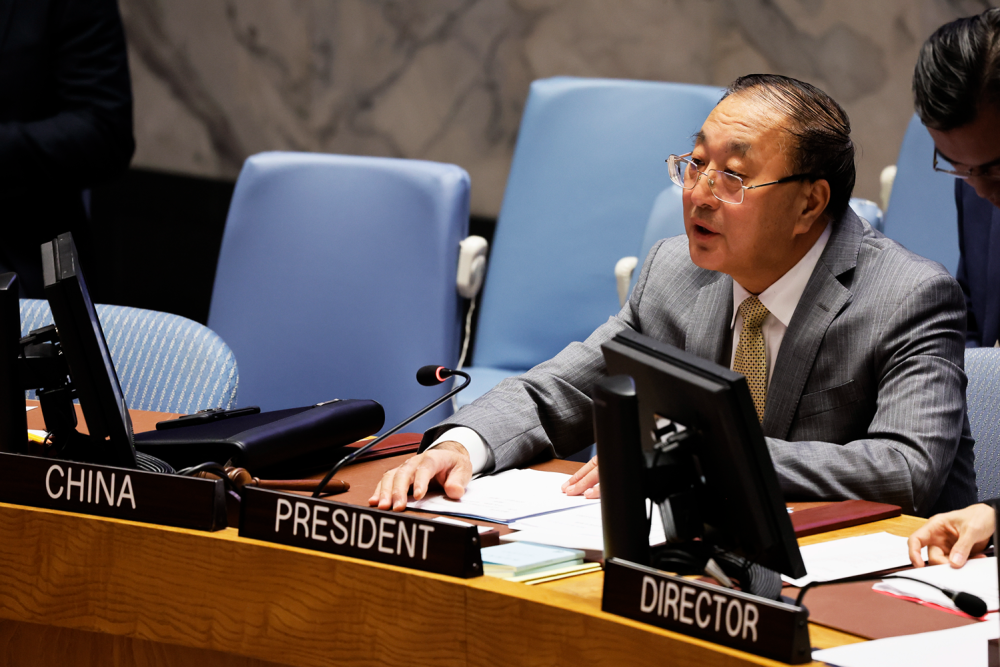作者/Author(s): Yun Sun
網站來源/Source: Foreign Policy
日期/Date: 02/29/2024
關鍵字/Keywords: 地緣政治、強權競逐、中東
摘要:
當中國成功斡旋沙烏地阿拉伯和伊朗的和平談判後,許多人希望中國多做一些事情來幫忙和緩中東地區的緊張局勢,甚至解決衝突,然而中國未能滿足大眾的期望。中國並沒有足夠的資源和能力取代美國,成為中東地區的主要安全保障者,中國只想削弱以美國為首的安全架構。
- 中國受益於美國在中東地區的安全保障,而北京則提供更緊密的經濟合作來穩定該地區。隨著中國對石油依賴越來越多,他希望中東地區更加穩定,但他沒有能力維護中東和平。
- 中國的中東安全架構願景是一個共同、全面、合作、永續的架構,能兼顧所有國家的安全議題。這是一個以過程為導向的方案,中國在其中扮演著關鍵角色,但不會取代美國,最好是中國成為區域危機的召集者或調停人。
- 雖然中國一再批評美國破壞中東地區的穩定,但有限的國防預算和有限的行動空間意味著中國無法在該地區取代美國。此外鑒於美國無法完全脫離中東地區,中國想對美國提出挑戰和批評的成本較低。
- 如果美國真的撤出中東,將會導致油價飆升,石油供應中斷,這是中國所擔心也不願發生的不穩定局勢。
- 比起單方面承擔責任,中國更希望通過多邊途徑與中東地區合作。目前中國在阿富汗取得了一些明確的成果,但並不非擴大影響力,而是為了控制損失。中國可能會循這個模式對整個中東地區採取類似的戰略。
Summary:
When China successfully mediated the Saudi-Iran peace negotiation, many hoped that China could do more to de-escalate tensions and resolve conflicts in the Middle East, but China fell short of public expectations. China does not aim to replace the US as the main security guarantor in the Middle East because it does not have the resources and capabilities to do so. Instead, China only wants to weaken US-led security architecture without being the leader.
- China benefited from the US security protection in the Middle East, while Beijing provided tighter economic engagement to stabilize the region. When China increasingly relies on oil, it hopes for a more stable Middle East, but it does not have the capabilities to offer peace.
- China's alternative Middle East security architecture vision is a common, comprehensive, cooperative, and sustainable framework that accommodates the security concerns of all countries. It is a process-oriented scheme with China playing a critical role but not replacing the US, preferably with China being the convener or mediator for regional crises.
- Although China repeatedly criticized the US for destabilizing the Middle East, its limited defense budget and confined operation space means it cannot replace the US in the region. Further, as the US cannot fully disengage from the important Middle East, challenging and criticizing the US is relatively cost-free for China.
- If the US did withdraw from the Middle East, it would create instability that China fears, as it would spike oil prices and disrupt oil supplies.
- China seeks to engage the Middle East from a multilateral approach rather than unilaterally assuming responsibility. It has had some definitive results in Afghanistan but is more about damage control than expanding its influence, and it may use a similar strategy for the whole region.

